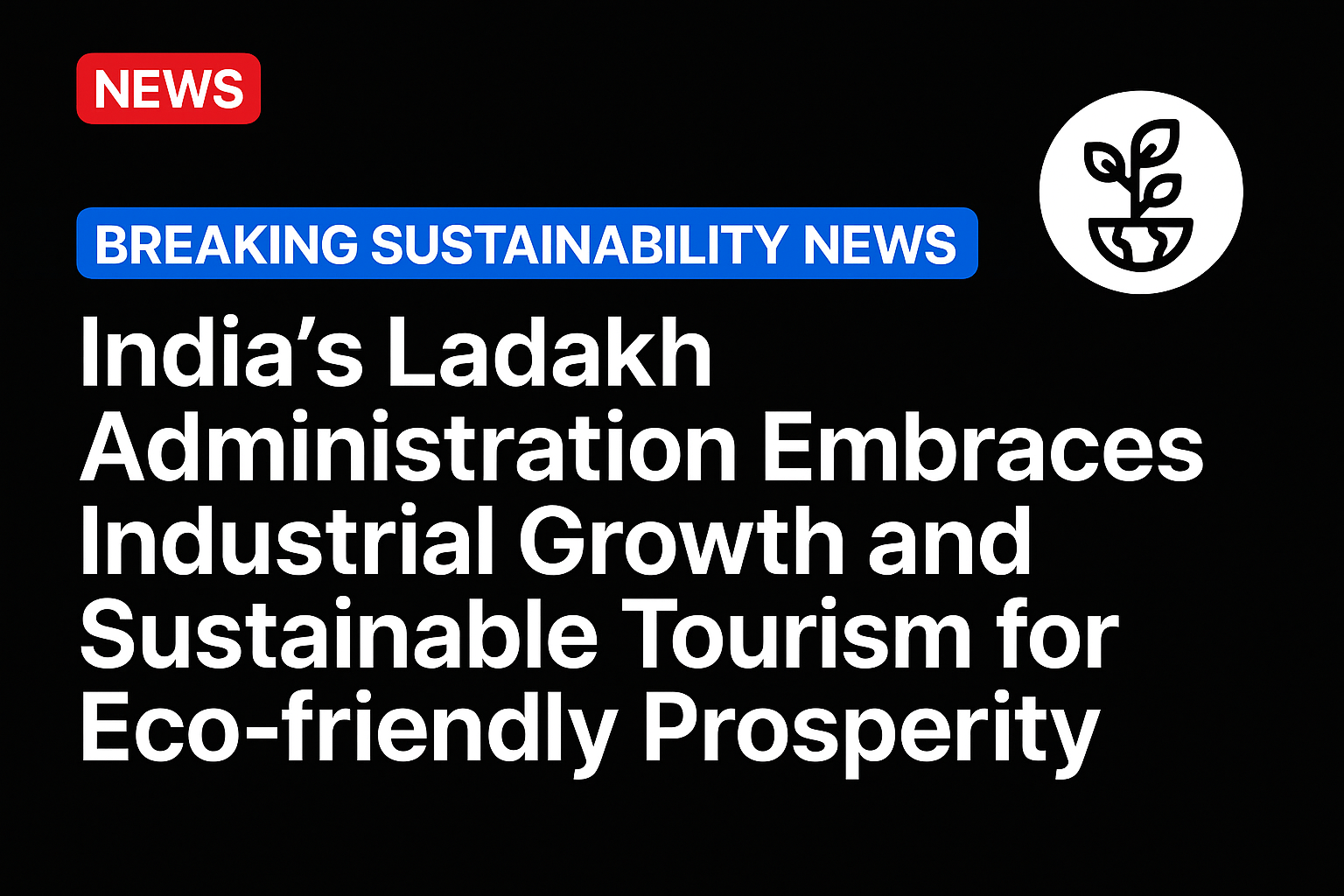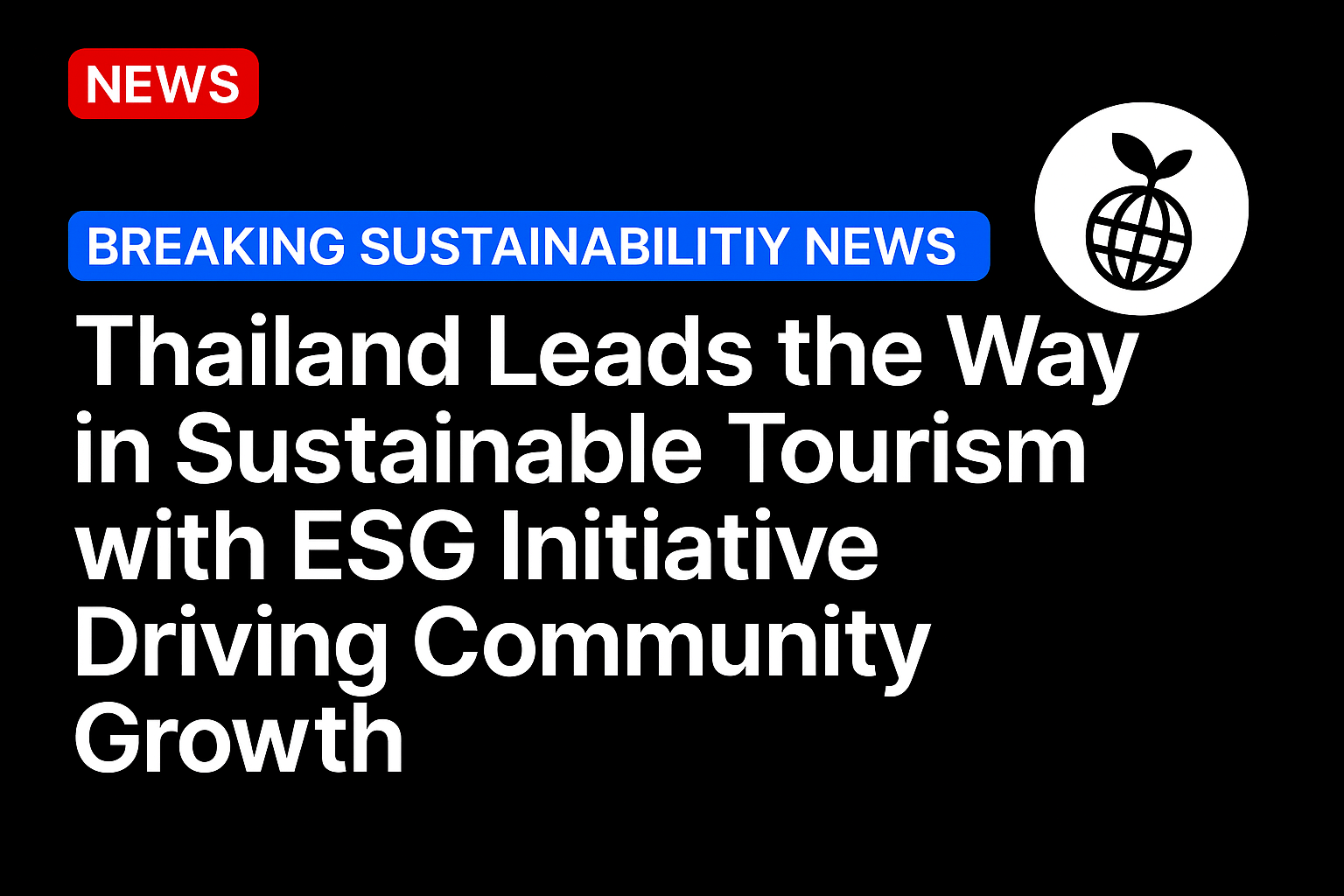India’s Ladakh Administration is fostering eco-friendly prosperity by balancing industrial growth with sustainable tourism, ensuring economic development while preserving the region’s cultural and ecological heritage. This strategy aims to empower local communities, promote eco-tourism, and drive long-term, sustainable growth.
A central focus of the administration’s plan is to drive investment and create employment opportunities for the local youth, particularly in sectors that are both economically viable and environmentally sustainable. Promoting tourism, especially rural and eco-tourism, plays a key role in this initiative. The Lieutenant Governor emphasized that Ladakh’s unique culture and natural beauty must be preserved for future generations. At the same time, sustainable tourism offers significant potential for economic growth, providing livelihoods for locals while minimizing negative impacts on the environment. This careful balance is essential to maintaining the region’s distinct identity and ecological integrity.
In a meeting with various delegations at the Lieutenant Governor’s Secretariat, the vision for Ladakh’s future was discussed in greater detail. Representatives from Looms of Ladakh, an initiative that includes over 600 artisans from 19 villages, showcased their innovative, ethical luxury brand. The brand combines traditional herder-artisan craftsmanship with modern design, offering a unique blend of heritage and contemporary aesthetics. The initiative not only provides a market for Ladakhi artisans but also supports skill enhancement and empowers them to preserve their cultural legacy. It is a perfect example of how traditional industries can adapt to modern demands without compromising on sustainability.
The entrepreneurial spirit in Ladakh is also contributing to the region’s growing tourism sector. One such entrepreneur discussed the untapped tourism potential in areas such as Domkhar, Takmachik, Skurbuchan, and the Aryan Valley. These locations, rich in cultural heritage and natural beauty, are poised to offer tourists a unique, off-the-beaten-path experience. Notably, Domkhar is home to 6,000-year-old rock art that adds to its historical significance, while festivals like the Apricot and Buckwheat festivals offer opportunities to generate local income by attracting visitors interested in experiencing traditional Ladakhi culture. These initiatives could greatly benefit the local communities, providing not only economic growth but also a deeper connection between locals and their heritage.
Delegations from the Anjuman Imamia Women’s Wing and the Nambardars from Kargil raised several important concerns during their discussions. Among their key demands were the completion of critical infrastructure projects, such as the Kargil-Batalik road and the Hamboting-La tunnel. These projects are expected to greatly improve connectivity between remote areas of Ladakh and more urbanized regions, thus reducing isolation and boosting economic activity. The Lieutenant Governor assured that the administration is committed to addressing these infrastructure gaps, recognizing that improved transportation and connectivity are crucial for the region’s development.
The Lieutenant Governor reiterated that industrial growth and tourism development must go hand in hand, with a focus on sustainability and community well-being. He emphasized that policies would prioritize the empowerment of local communities, ensuring that they benefit from the region’s growth while preserving their way of life. Environmental preservation is also a cornerstone of the administration’s approach, as the region’s delicate ecology must be safeguarded against overexploitation.
Looking ahead, the administration’s goal is to create a model for development that is both inclusive and eco-friendly. The Lieutenant Governor called on all stakeholders, including entrepreneurs, civil society, and government bodies, to work together in realizing this vision for Ladakh’s future. Collaboration and active participation from all sectors will be key to ensuring that the region’s growth is both sustainable and beneficial to all its residents.
Through its commitment to industrial development, sustainable tourism, and infrastructure improvement, Ladakh is poised to become a model of balanced, community-driven growth. By empowering its people and preserving its environment, the administration aims to ensure that Ladakh remains a unique and vibrant part of India’s future. The focus on eco-friendly tourism and sustainable development holds great promise for the region’s prosperity, while ensuring that its cultural and environmental heritage is preserved for future generations.
Source: https://www.travelandtourworld.com/




